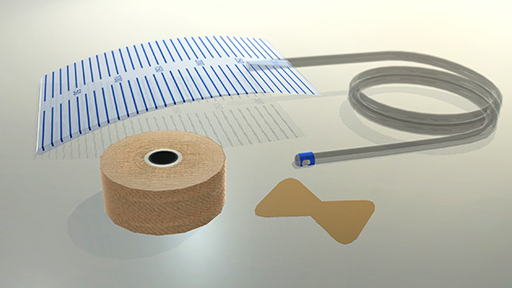Inserting a Nasogastric Tube (NGT)
7902 STUDENTS ENROLLED
There are two main indications for nasogastric tube insertion via the nostril and into the client’s stomach.
- Enteral feeding
- Drainage of gastric content
These are two very different clinical indicators for the insertion of a nasogastric tube; therefore, the indication for the nasogastric tube will guide the care of the tube.
Enteral feeding is a method of supplying nutrients directly into the gastrointestinal tract. A wide range of clients may require enteral feeding either for a short or extended period of time for a variety of reasons including:
- poor nutritional intake
- impaired swallowing/sucking across the life span from neonates to geriatrics
- facial or oesophageal structural abnormalities
- anorexia related to a chronic illness
- eating disorders
- primary disease management.
Enteral feeding tubes may also be used to administer medications.
Insertion of a nasogastric tube for drainage may also occur:
- to facilitate drainage and aspiration of the stomach contents
- for decompression of the stomach
- to diagnose upper gastrointestinal tract bleeding.
It is vital that correct placement of the nasogastric tube is confirmed by
- aspirating stomach content and assessing pH
- X-ray to confirm the tube is placed in the stomach and not in the respiratory tract.

